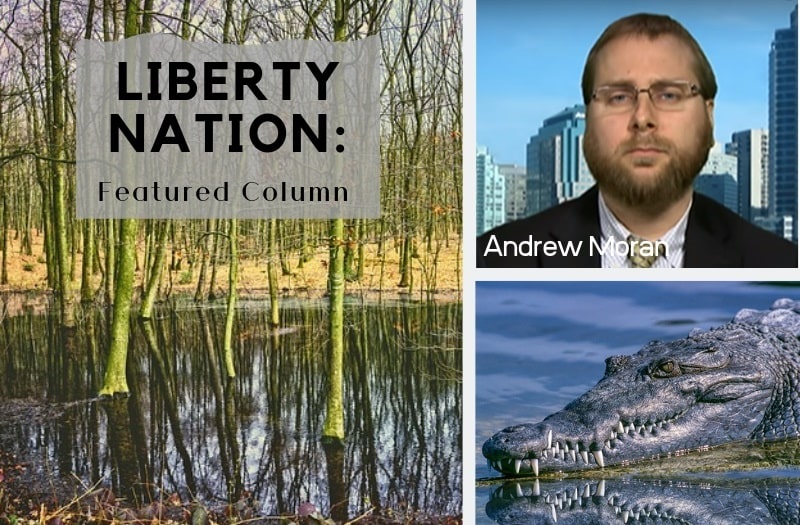Recycling a Racket
One of the biggest rackets in the U.S. today is recycling. Since we were kids, we have been indoctrinated with this supposed feel-good environmental duty, one that will save the planet and allow us to virtue signal to our neighbors because we can differentiate between the black, blue, and green bin and their various intricacies. But is recycling really doing much to appease Mother Nature? Hardly, but don’t tell that to Washington Post columnist John Kelly.
In an opinion piece, titled “Recycling is good for the planet. We need to get better at it.” Kelly lectured readers about how to properly recycle, how Americans are not doing a better job of it, and how his neighborhood celebrates trash-and-recycling day every Wednesday. But he did reveal something interesting that leads to a whole conversation of why recycling is not beneficial: cost.
 As Liberty Nation has written in the past, it costs a lot of money to collect and process materials, sometimes even more than starting from scratch. The article said that aluminum is the exception, but that is false because prices have cratered 30%, and its recyclables market is shrinking in size and profitability levels. So, municipalities cannot make money on recycled aluminum.
As Liberty Nation has written in the past, it costs a lot of money to collect and process materials, sometimes even more than starting from scratch. The article said that aluminum is the exception, but that is false because prices have cratered 30%, and its recyclables market is shrinking in size and profitability levels. So, municipalities cannot make money on recycled aluminum.
Ultimately, recycling is more of a hassle than it is worth. It causes a headache trying to determine what goes where. It costs municipalities a lot of money to recycle. It also offsets any potential gains; just think about the trucks that drive around in your neighborhood to pick up your recycling or how recycled glass needs to be shipped to different states.
Landfill may be a dirty word, but these sites could be the real solution to our trash. They are more environmentally friendly, they produce energy, and they can make governments some extra cash.
So, no, recycling is [shrug shoulders here] for the planet, and we do not need to get better at it.
If It Dribbles Tax It
Do you want to see politicians try to get their hands on your money in real-time? Well, look no further than Sen. Richard Burr (R-NC), who now wants to tax NCAA athletes and their scholarships. Oy, vey!
The Associated Press broke the news that the NCAA would permit student-athletes to make money from names, images, and likenesses after years of banning players from earning any money. Two hours had not even gone by when Sen. Burr tweeted this:
“If college athletes are going to make money off their likenesses while in school, their scholarships should be treated like income. I’ll be introducing legislation that subjects scholarships given to athletes who choose to ‘cash in’ to income taxes.”
It makes you wonder: Are politicians always on the prowl for tax revenue? Yes, the government is hard up for cash after posting a near-trillion-dollar budget deficit in the fiscal year 2019, but this is too much.
The NCAA’s decision is between the student and the association, not the state. If these student-athletes are finally able to make a living while attending school and participating in an ultra-competitive league, why is it the government’s business? If you ever want to see the iniquities of the Swamp, this is a prime example of its odious behavior.
A Bank Run in China
It looks like China’s Ponzi scheme in the finance sector is no longer working as a growing number of banks are experiencing runs and requiring bailouts. In recent months, four major Chinese banks have failed due to horrific loans and terrible assets. To prevent panic, the government nationalized them. But that seemingly is not enough for many depositors who tried to get their money back.
 The latest institution to implode was Henan Yichuan Rural Commercial Bank, which had to shut its doors for a few days. After cautiously reopening its main branch, customers were warned not to withdraw beyond their two-year limit. At the same time, however, managers told customers: “Our bank is state-backed, and your money is insured by deposit insurance.”
The latest institution to implode was Henan Yichuan Rural Commercial Bank, which had to shut its doors for a few days. After cautiously reopening its main branch, customers were warned not to withdraw beyond their two-year limit. At the same time, however, managers told customers: “Our bank is state-backed, and your money is insured by deposit insurance.”
That did not stop adamant customers from collecting their yuan and going home. Zhang Yanting, a 51-year-old farmer, for instance, waited several days to get his 13,000 yuan in deposits back. In the end, he kept his account open for his grain subsidies, but the rest was removed from the system. He did not fall for the government propaganda, and he will be one of the few who were able to successfully recover the fruits of their labor.
A collapsing yuan, slowing gross domestic product, and a crumbling economy – did President Donald Trump break China, too? Well, it was only a matter of time before the charade was exposed for what it was, and now Beijing is trying everything to prop up the house of cards. The bank runs were probably the beginning of something catastrophic happening in the Asian powerhouse. What’s next?
Whatever happens, the U.S. may need to prepare to contract its flu, too, especially since Beijing owns the second-largest amount of Treasurys. A trade agreement might stave off the inevitable decay of the Chinese market, as well as the global economy. But it will only be a matter of time before China’s economic doom.
Nothing Is What It Seems
Indeed, nothing is what it seems anymore. Every day, we are learning that what was accepted conventional wisdom years ago is turning out to be wrong.
Recycling is costly and does nothing for the planet, despite the never-ending promotion in school by the government and in the press. Right-leaning politicians claim they want small government and for more people to pay less to the state, but then when NCAA player-athletes are afforded tremendous opportunities, some Republicans get perturbed. For a long time, we believed the Chinese economy was as good as gold and their banks were the gold standard in the global industry.
The joke is on us. These events should serve as a lesson: Never trust what the so-called experts say.
~
Read more from Andrew Moran or comment on this article.




